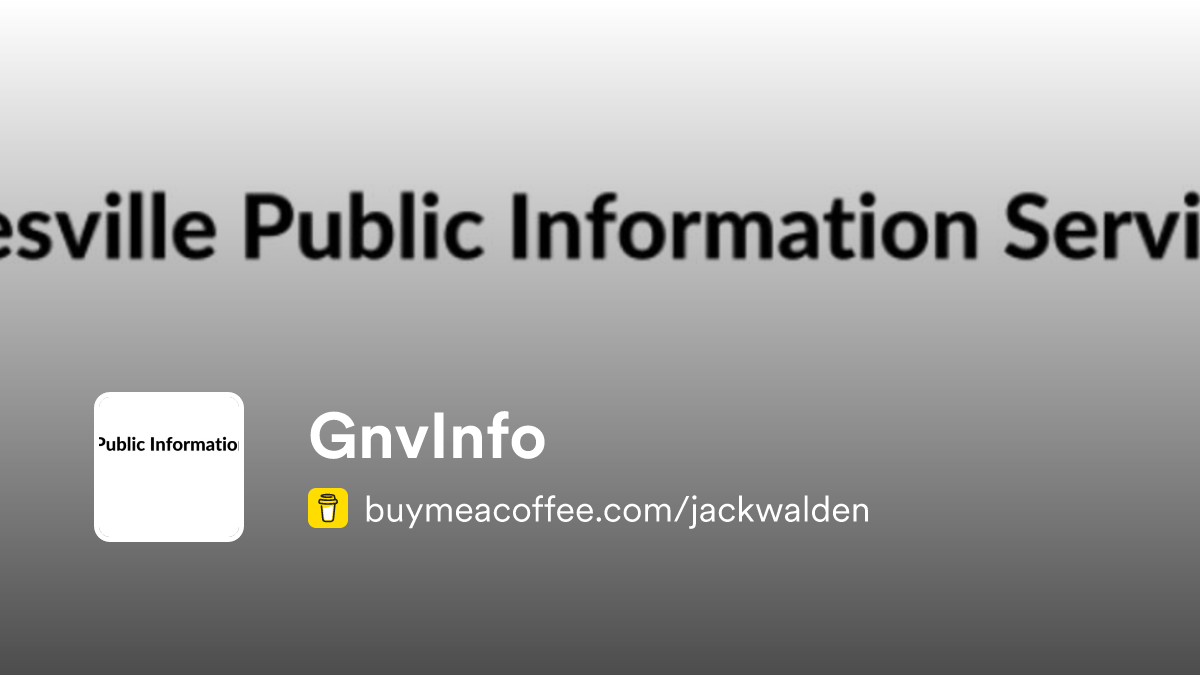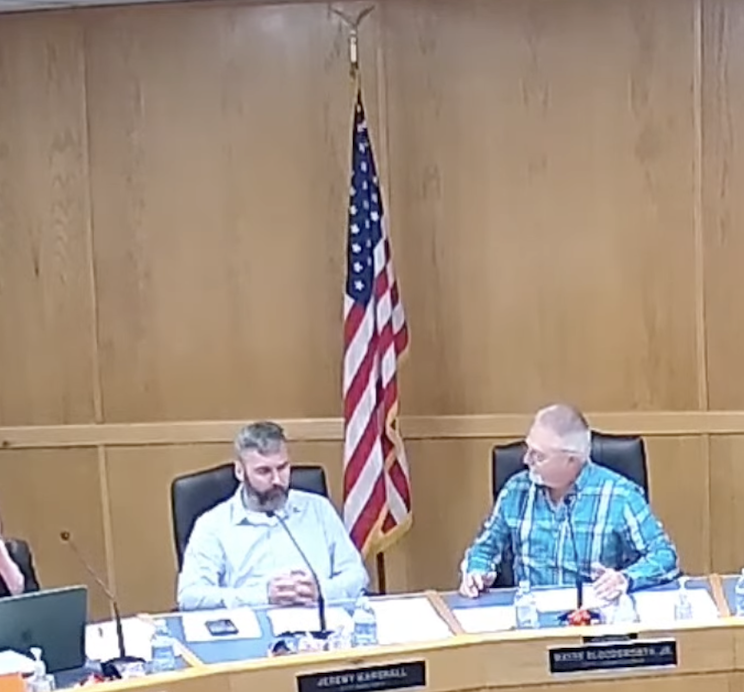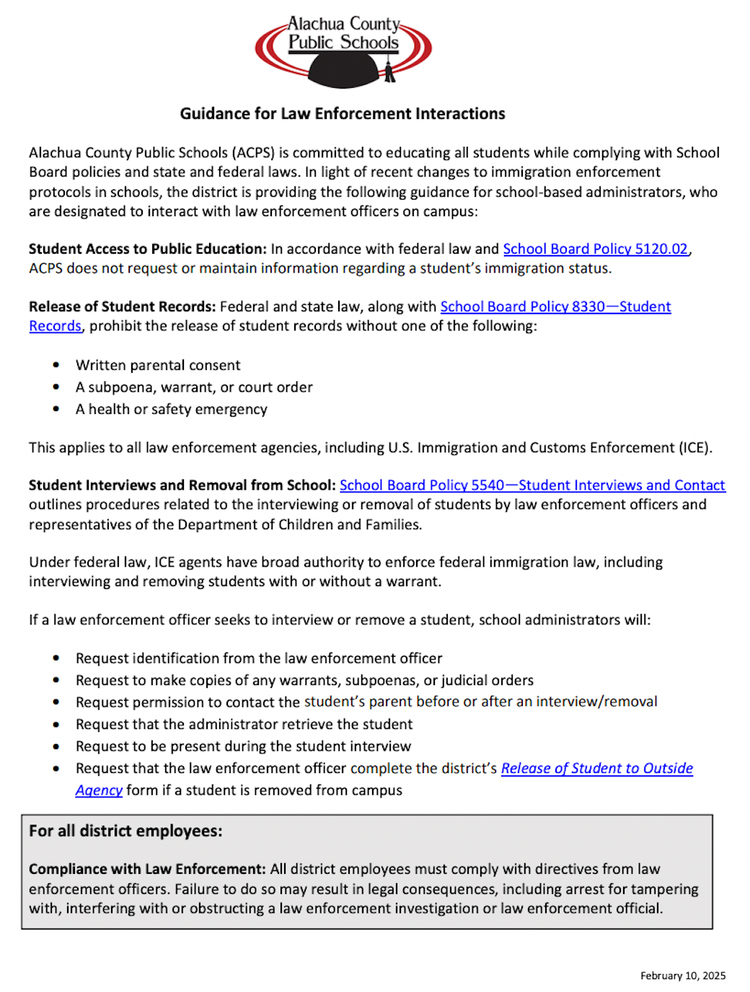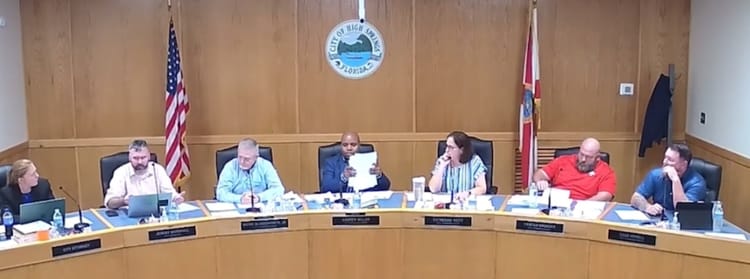Smart Trash Cans Spark Concerns About ICE Surveillance
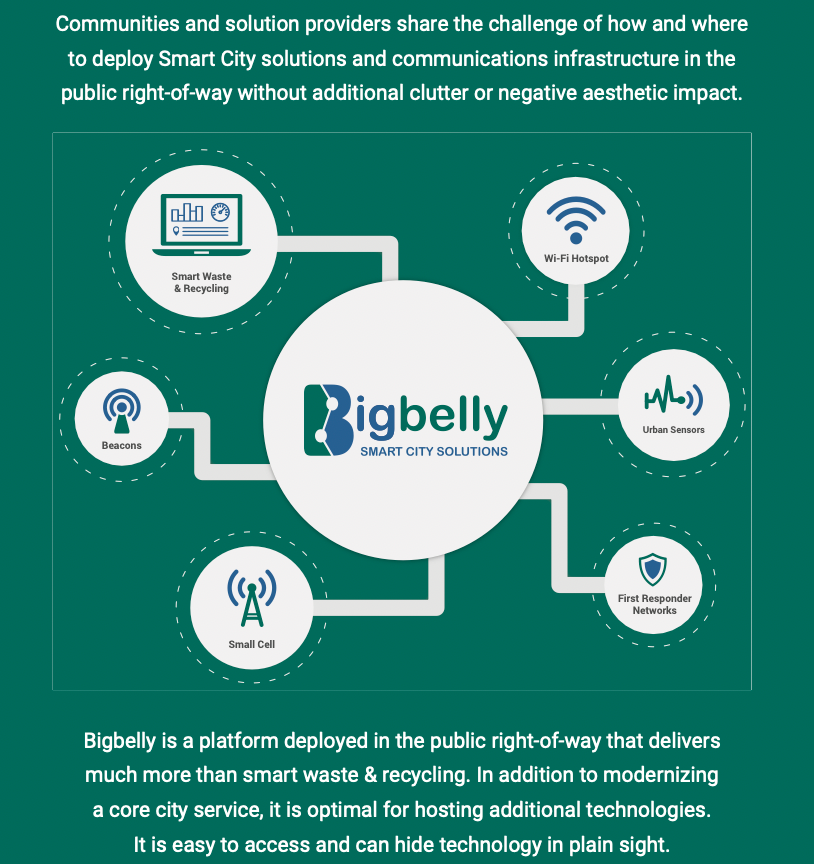
Edited Aug 8: Mistakenly reported that Singleton was the public works manager, when the position he currently holds is special advisor to the city manager.
At the city commission meeting on Thursday, officials discussed approving a $589,518 purchase for 75 Bigbelly trash cans.
The city currently has 44 of the solar-powered cans around the city, each coming with an attached recycling bin.
Commissioners planned to approve the purchase via consent agenda, meaning it would be approved without discussion. Commissioner Ed Book requested his colleagues put it on the regular discussion agenda following public interest, which they agreed to.
Public Works Operations Manager Jared Lloyd gave a presentation on the trash cans, stating, “They have smart technology which can talk directly to our current work management system, so in real time we can pull up a map and see the fullness of each unit in the city, which will allow us to kind of target pickups instead of running around the city looking at half-empty or half-full garbage cans. We’ll get some greenhouse emission savings there, production increases and labor cost decreases.”
A few minutes later, Commissioner Desmond Duncan-Walker said, “There seems to be a group of community members who are concerned that some of the surveilling information could be requested by [U.S. Immigration and Customs Enforcement]. They are concerned with how the city would respond to that… Can you tell us exactly what information we would be gathering through the surveillance?”
Lloyd responded, “Honestly, I can’t speak to surveillance of it. I’m not aware of the surveillance aspect.”
Special advisor to the city manager, Brian Singleton, stood up and took the microphone, stating, “To our knowledge, the units don’t collect any personal identifiable information. We don’t know who is walking up to them. We don’t know who is putting trash in them. We don’t know who is hanging out around them. It’s just data about how much trash is in them, how many times the unit cycled. Is the solar power working right? Is the battery working right? We’re not collecting any personal information with the cans.”
Duncan-Walker asked if there was any discussion with the local community about their concerns, and City Manager Cynthia Curry responded it was the first she heard them brought up.
Singleton said the city communications office would put something out about how the trash cans work and what data they collect.
Duncan-Walker asked again if a conversation with the community would be possible, and Singleton said it would be if the commission desires.
Curry said they could put information about the trash cans in neighborhood advisory meetings and Community F.I.R.S.T meetings.
Commissioner James Ingle confirmed with Lloyd that the funds for the trash cans were coming out of the city’s solid waste funds and not general funds, meaning it is being covered with money specifically allocated for garbage.
Ingle jokingly asked if the trash cans are upgradable with Spotify or Netflix.
“Not that I’m aware of,” Lloyd responded.
Commissioner Casey Willits asked if they could purchase the trash cans without the tracking software, and Lloyd said it was an option. The non-smart option would save $115 per trash can.
Duncan-Walker asked if they could wait to make a decision on the purchase, and Lloyd said it was urgent, as the money is only available in the current fiscal year.
Singleton chimed in that they want to move forward with the purchase because prices are increasing and the city is getting a discounted rate on the trash cans.
Duncan-Walker reiterated that she wants there to be a conversation with neighbors before they make the purchase.
Curry said that she and her staff didn’t hear concerns when talking with community members but that she is happy to “aggressively do some education.”
Curry said to Duncan-Walker, “I’m not sure who is communicating with you. I’m open to you sharing that with me so we can go directly in, but we’ve just not heard any concern about it in terms of intelligence breaches.”
Singleton said, “The units we're purchasing—we’re proposing to purchase— [they] don’t collect any personal identifiable information. There’s no way to connect your cell phone to them. There’s just no way to collect any personal identifiable data. The company has different units—a community-type model where you can have food waste [and] there’s a key you enter into it, and that key is tied to people who are dumping their food waste into it, but this is not that type of unit. We’re not collecting any data.”
Curry said, “It is smart. I don’t think it's that smart though. It’s a garbage can. I don’t think there’s an intelligence breach, but we need to be able to educate the community about that.”
Mayor Harvey Ward asked if the trash cans had cameras.
“Not that I’m aware of,” Lloyd responded.
During public comment, Alachua County resident Angela Casteel criticized the commission for talking about the trash cans in the middle of the meeting, as they previously stated it would be discussed at the end. Casteel said the commissioners were trying to prevent certain individuals from giving public comment on the item.
Ward responded, “Hold on, let's be real clear. I assumed you were probably here for this, and I was trying to keep you from having to sit here until 10:00 or 11:00 tonight.”
Casteel said waiting until nighttime wouldn’t matter to her and that some people intended to speak on the item later in the day.
Casteel said the trash cans were a waste of money and urged the commissioners to hold off on making a decision.
Commissioners unanimously approved the purchase of the trash cans without further public comment.
According to a Bigbelly brochure, “Bigbelly is a platform deployed in the public right-of-way that delivers much more than smart waste & recycling. In addition to modernizing a core city service, it is optimal for hosting additional technologies. It is easy to access and can hide technology in plain sight.”
According to the brochure, “Stations are densely installed across public spaces to keep communities clean and to capture waste where the people are. Cities can take advantage of shared space in the stations to deploy other technologies without adding clutter in dense urban areas. The core waste infrastructure has a proven form factor and offers a multi-purpose platform capable of hosting Smart City technologies. City-wide deployments enhance the urban experience without negative aesthetic impact by hiding equipment in plain sight.”
The brochure goes on to describe how the operator of the trash cans will be able to access a cloud-connected platform that includes “a set of tools for system setup, management, monitoring, and optimization from either a web-based software or mobile app.”
The brochure states, “Users can optimize collection routines, measure and benchmark operations, and realize location-based waste patterns (volume, fill rate, collection activity) across a Bigbelly smart waste fleet.”
The brochure states the trash cans may include “urban sensors” that “capture data from footfall and noise, to environmental status and pollution levels.”
According to the brochure, the trash cans may include “location based beacons” that “deliver location-based messages and notifications, such as neighborhood alerts, public service announcements, or local business promotions.”
The brochure says the trash cans may be used to host “networking equipment," including "separate first responder networks or emergency broadcast systems."
The brochure urges users to “Leverage the Bigbelly platform as a multi-purpose infrastructure in dense urban areas. It can host small cell and other wireless equipment in an easy to access sidewalk location while being hidden in plain sight.”
